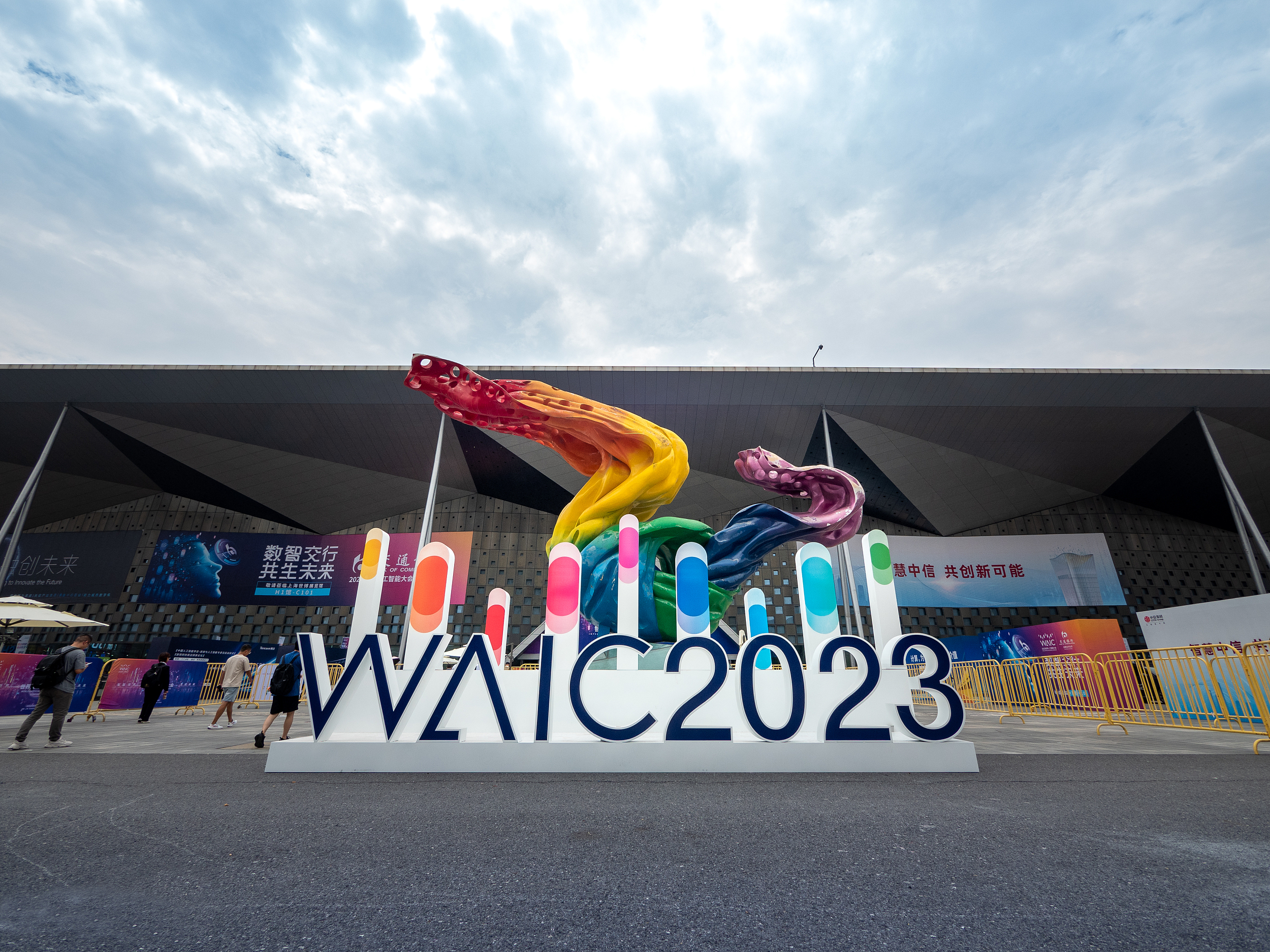First of Its Kind Regulation for Generative AI
By LI Linxu
Soon after soliciting public opinion, China finalized a regulation on the governance of generative AI.
The regulation will come into effect on August 15, 2023, according to a decree jointly released by seven government bodies, including the Cyberspace Administration of China (CAC) and the Ministry of Science and Technology (MOST).
As the first of its kind in the world, the regulation has garnered attention from people across society, and is being closely watched across the globe.

The World Artificial Intelligence Conference (WAIC) 2023 is held from July 6 to 8 in Shanghai. (PHOTO: VCG)
The rapid development of generative AI has brought new opportunities for economic and social growth, while also triggering concerns about disinformation, personal privacy and data security.
The regulation specifies the basic norms for generative AI services, said an official from CAC, noting that it meets the urgent needs to promote the healthy development of generative AI.
Encouraging innovative development
Compared with the draft version, the final version has further clarified the regulation's scope of application.
According to the regulation, the measures apply to those providing generative AI services to the general public.
For those conducting R&D and application of generative AI technologies that are not available to the general public, the measures are not applicable.
Innovative applications of generative AI technologies in various sectors are encouraged, as per the regulation, urging industry associations, enterprises, and education and research institutes to coordinate in technological innovation, data resource construction, application and risk prevention.
Indigenous innovation in basic technologies, such as generative AI algorithms, frameworks and support software platforms, are also encouraged, said the regulation.
It advocates international exchanges and cooperation, and calls for participating in the formulation of relevant international rules.
Efforts will be made to advance the construction of generative AI infrastructure and public training data resource platforms.
The measures signal the government's positive attitude toward innovation in generative AI, and will inject strong confidence into tech companies, said Zhou Hongyi, founder of 360 Digital Security Group, adding that the clearly drawn boundary will facilitate the R&D of relevant institutes.
Ensuring healthy development
While promoting innovation, the regulation also attaches great importance to the healthy development of generative AI.
Taking an inclusive and prudential approach, the regulation exercises classified and grading supervision on generative AI services, said the official.
It puts forward a series of measures for the healthy development of the sector, such as setting up service norms, stipulating the obligations of service providers, and clarifying the responsibilities of relevant government bodies.
The measures require service providers to fulfill the obligations of online information security, including protecting personal information, taking precautions to prevent underage users from becoming addicted to such services, and establishing a mechanism to handle user complaints.
If a service provider finds illegal content, it should take measures to remove such content, improve the algorithms, and report it to concerned authorities.
The pre-training and optimized training data used for generative AI shall not infringe on intellectual property rights, as per the regulation.
The philosophy behind these measures is in line with relevant laws and regulations, and is conducive to cultivating an environment of science for good, Tian Jingqiao, a lawyer specialized in cybersecurity law, told S&T Daily.







